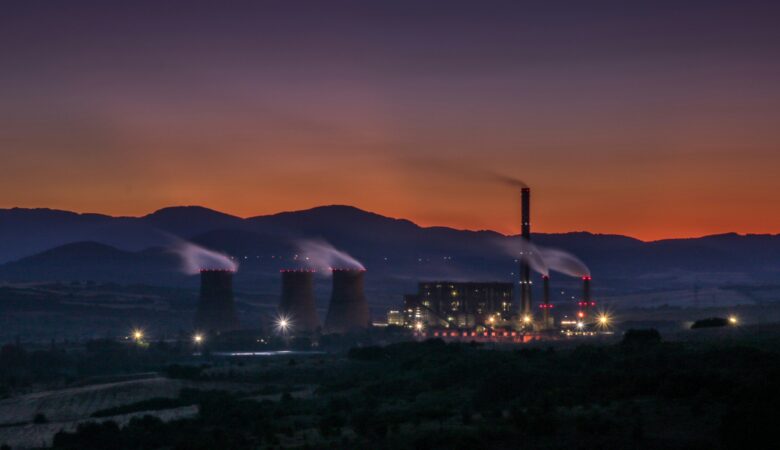Nigeria, the largest economy in Africa and a country blessed with abundant natural resources, stands at a pivotal point in its energy journey. The nation’s growing population and expanding industrial base are driving up energy demands, while the global shift towards sustainability is pushing countries to reconsider their reliance on fossil fuels. In this context, renewable energy is becoming an increasingly important component of Nigeria’s energy mix. As one of the leading energy companies in West Africa, Rhinobay Energy is playing a crucial role in driving this transition towards a more sustainable energy future.
Understanding Nigeria’s Energy Mix
Historically, Nigeria’s energy mix has been dominated by fossil fuels, particularly oil and natural gas. The country is one of the largest oil producers in the world, and its economy has been heavily dependent on oil exports for decades. However, the reliance on fossil fuels has also come with significant challenges, including environmental degradation, volatility in global oil prices, and inadequate electricity access for a large portion of the population.
Despite being rich in natural gas, hydroelectric potential, and other renewable resources, Nigeria has struggled to provide stable and reliable electricity to its citizens. The national grid is often overburdened, leading to frequent power outages and forcing many businesses and households to rely on expensive and polluting diesel generators. This situation has highlighted the urgent need to diversify the energy mix and invest in more sustainable and reliable energy sources.
The Emergence of Renewable Energy in Nigeria
Renewable energy offers a promising solution to Nigeria’s energy challenges. With its vast solar potential, significant hydro resources, and untapped wind energy, Nigeria is well-positioned to integrate renewable energy into its energy mix. The Nigerian government has recognized this potential and has set ambitious targets to increase the share of renewables in the energy mix to 30% by 2030.
Rhinobay Energy has been at the forefront of this renewable energy revolution. The company is actively investing in and promoting renewable energy projects across the country, helping to reduce dependence on fossil fuels and create a more sustainable energy future for Nigeria.
The Role of Solar Energy

Solar panels on the roof.
Solar energy is one of the most promising renewable energy sources in Nigeria. The country receives an average of 5.5 kWh/m²/day of solar radiation, making it an ideal location for solar power generation. Rhinobay Energy has recognized this potential and has focused on expanding its solar energy offerings to meet the growing demand for clean and reliable electricity.
Rhinobay Energy provides a range of solar solutions, from small-scale solar home systems for rural and off-grid communities to large-scale solar farms that supply power to the national grid. By leveraging advanced solar technologies and offering end-to-end services—including design, installation, and maintenance—Rhinobay Energy is helping to make solar power more accessible and affordable for Nigerians.
Hydroelectric Power: Harnessing Nigeria’s Water Resources
In addition to solar energy, hydroelectric power is another key component of Nigeria’s renewable energy mix. With numerous rivers and water bodies, Nigeria has significant potential for hydroelectric power generation. Rhinobay Energy is exploring opportunities to develop small-scale hydroelectric projects that can provide reliable electricity to rural areas and support local economic development.
By focusing on smaller, decentralized hydro projects, Rhinobay Energy aims to bring power to regions that are not connected to the national grid, thereby improving energy access and contributing to the overall development of these communities.
The Potential of Wind Energy
While wind energy is less developed in Nigeria compared to solar and hydro, it remains an important part of the renewable energy landscape. Certain regions in Nigeria, particularly the northern areas, have significant wind energy potential. Rhinobay Energy is committed to exploring and developing wind energy projects as part of its strategy to diversify Nigeria’s energy mix and reduce the country’s carbon footprint.
The Economic and Environmental Benefits of Renewable Energy
The integration of renewable energy into Nigeria’s energy mix offers numerous benefits, both economic and environmental. Economically, renewable energy projects create jobs, stimulate local economies, and reduce the cost of electricity over time. For example, solar power installations create employment opportunities in manufacturing, installation, and maintenance, while also providing a reliable source of energy that supports business operations and economic growth.
Environmentally, renewable energy helps to reduce greenhouse gas emissions and mitigate the impacts of climate change. By replacing fossil fuels with clean energy sources like solar, wind, and hydro, Nigeria can significantly reduce its carbon footprint and contribute to global efforts to combat climate change. Rhinobay Energy’s commitment to renewable energy is not only about providing electricity but also about ensuring that this electricity is generated in a way that is sustainable and environmentally friendly.
Overcoming Challenges in the Renewable Energy Sector
Despite the numerous benefits of renewable energy, there are also challenges that need to be addressed to fully realize its potential in Nigeria. These challenges include inadequate infrastructure, regulatory barriers, and the need for significant upfront investment.
Rhinobay Energy is actively working to overcome these challenges by partnering with government agencies, financial institutions, and international organizations to create a more conducive environment for renewable energy development. The company is also investing in capacity building and training programs to ensure that the local workforce is equipped with the skills needed to support the growth of the renewable energy sector.
Rhinobay Energy’s Vision for the Future
Looking ahead, Rhinobay Energy envisions a future where renewable energy plays a central role in Nigeria’s energy mix. The company’s long-term strategy is focused on expanding its renewable energy portfolio, driving innovation in clean energy technologies, and promoting energy access for all Nigerians.
Rhinobay Energy’s commitment to sustainability is reflected in its ongoing efforts to develop renewable energy projects that are not only economically viable but also environmentally responsible. By integrating renewable energy into Nigeria’s energy mix, Rhinobay Energy is helping to create a more resilient, sustainable, and prosperous energy future for the country.
The Path Forward
The future of Nigeria’s energy sector lies in the successful integration of renewable energy into the national energy mix. As the country continues to grow and develop, the need for reliable, affordable, and sustainable energy will only become more pressing. Rhinobay Energy is leading the way in this transition, providing innovative renewable energy solutions that meet the needs of today while ensuring a sustainable future for generations to come.
Incorporating renewable energy into Nigeria’s energy mix is not just an option—it is a necessity. With companies like Rhinobay Energy at the forefront of this movement, there is great hope that Nigeria will be able to achieve its energy goals and become a leader in renewable energy on the African continent. As we look to the future, the role of renewable energy in powering Nigeria’s growth and development cannot be overstated, and Rhinobay Energy is poised to be a key player in this exciting journey.
Nigeria, Africa’s most populous nation, is at a critical juncture in its energy journey. As the world pivots towards sustainability, the importance of renewable energy in Nigeria’s energy mix cannot be overstated. With a growing population and increasing energy demands, the country faces the challenge of balancing economic growth with environmental stewardship. In this article, we explore the pivotal role of renewable energy in Nigeria’s future, the current energy landscape, and the steps needed to embrace a greener path.















Leave a Reply